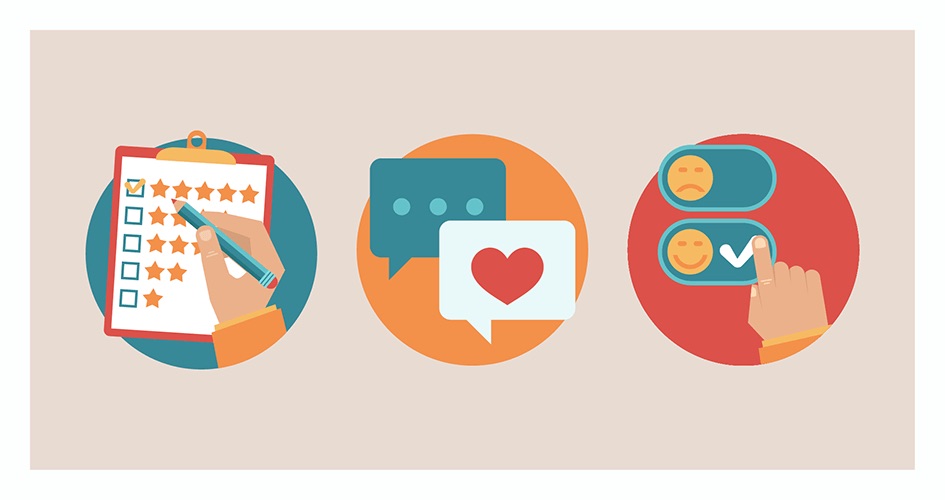Sales leaders know customers purchase from specific companies because of relationships, but what’s less understood is the link between these relationships and customer service.
Customers don’t just enter into these relationships for fun. They do so with a specific expectation that their needs will be effectively serviced. When there are gaps in this expected level of service, they may begin to feel unhappy with the relationship. However, when your salespeople are able to execute your company’s vision of outstanding service, you will see better customer retention, increased customer lifetime value, and exceptional buyer satisfaction.
You must present a unified customer service vision.
The classic “weak link in the chain” metaphor is apt in many situations, but especially so when it comes to customer service. One department, team, or employee in your company can excel at delivering an exceptional experience across every interaction with the customer, while another fails to fulfill the same promise. In the end, the customer will remember the lowest level of service they received. Unfortunately, that may be what they associate with your organization.
When every representative of your company adheres to the same service techniques and procedures, you deliver a cohesive message to the customer. This message resonates from their first experiences with your brand all the way through the sales and onboarding process and beyond. This is one of the most compelling reasons to instill in your team that customer service isn’t just a concept occurring in a single unit and during a phase in the buyer’s journey. Proactive customer service must be a constant presence in the relationship.
Customer service is directly tied to customer retention.
It’s obvious that salespeople have a vested interest in making sure their clients remain with the company. However, many of them still overlook the importance of customer service, which is often a determining factor in an organization’s retention rates. In fact, over two-thirds of buyers indicate a negative service experience has been a primary reason for terminating a business relationship.
When your business is able to retain a greater percentage of existing customers, it sends positive ripples throughout the company. You have a steady, predictable stream of revenue that can help you scale growth and forecast for the future. Higher customer lifetime value means you get better bang for your marketing buck, and your salespeople are able to build lasting relationships that can lead to consistent commissions.
Upsell opportunities abound, but only when the level of service is high.
For companies that excel at customer service, upselling isn’t a way to wring more revenue out of customers and increase sales commissions: It’s a conduit for delivering additional value to buyers who have already established a mutually beneficial relationship. Upselling is an incredible opportunity for both parties — the company gets the ancillary benefit of additional revenue per customer, and the customer discovers additional solutions to ease their pain points — but it’s only consistently possible with a foundation of excellent service.
In a B2B landscape, where 80 per cent of future sales can come from 20 per cent of your current clients, maximizing these opportunities is crucial to long-term success. Driving additional value through upselling is a similar principle to retention. When customers see your sales reps demonstrate superior service skills, including proactively handling problems, double-checking the details, and listening intently before working out solutions, they’ll be more likely to increase their commitment to your company.
An exceptional customer experience is the best way to exceed expectations.
You make explicit and implicit promises to your prospects in multiple ways throughout their relationship with your company. To do this you rely on brand development, marketing, the sales process, and so on. Of course, these aren’t just promises about your product. They’re deeply tied to your ability to provide a specific level of service in your interactions. These promises automatically work to create a set of expectations in the minds of the customers, which means it’s up to you to develop strategies for regularly exceeding these expectations. It’s one of the surefire ways to stand apart from your competition: According to survey results published in the Harvard Business Review, 84 per cent of customers said their service expectations had not been exceeded in a recent buying situation.
The best way to ensure your customers are thrilled with your service is to train your sales team members to anticipate customer needs at every level of the decision-making journey and to respond accordingly. When customers see you solve problems before they become serious issues, they’ll trust you will successfully take care of all of the details during the sales and onboarding process.
Customer service is a continuation of the most important relationship in business.
Ultimately, delivering outstanding customer service is a vital responsibility for salespeople because sales is a service business. Being a great salesperson requires empathy, listening, creativity, the ability to recall details, and a dedication to putting the customer’s needs first. These are all skills that translate easily to customer service interactions. Great sales leaders understand their reps build relationships that make up the foundation of the organization, and that service is at the root of these relationships.
Learn more ways to inspire business growth with our ebook, “Fast Path to Growth: Customer Relationship Management 101.”




